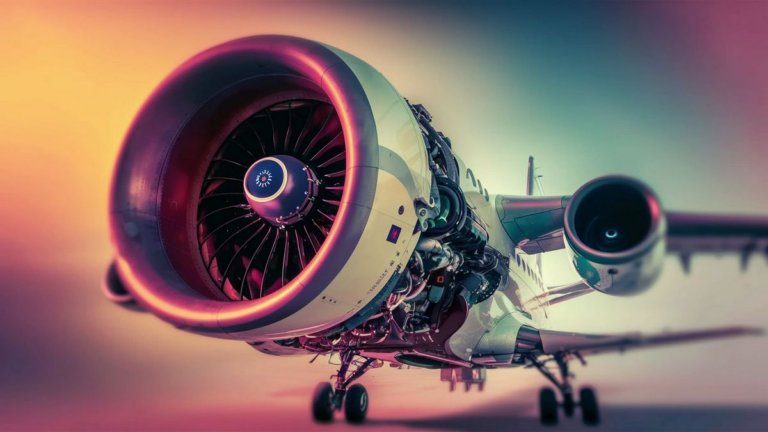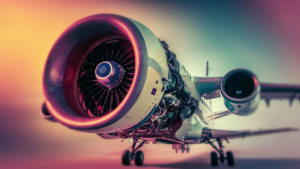When it comes to the Airbus A319, the engine is a critical component that ensures the aircraft’s performance, efficiency, and safety. Let’s delve into the intricacies of the Airbus A319 engine, exploring its design, capabilities, and significance within the aviation industry.
The Powerhouse: Engine Overview
The Airbus A319 is typically powered by two jet engines, with the choice often falling between the CFM International CFM56 and the International Aero Engines V2500. Both engines are renowned for their reliability, fuel efficiency, and performance characteristics, making them popular choices for the A319 and other aircraft models.
Performance and Efficiency
The engines of the Airbus A319 are designed to deliver optimal performance while maintaining fuel efficiency. These powerplants are capable of producing sufficient thrust to propel the aircraft to cruising altitude and speed, ensuring smooth and efficient operations throughout the flight.
Thrust Output
The engines of the Airbus A319 are engineered to provide adequate thrust for takeoff, climb, cruise, and descent phases of flight. This ensures that the aircraft can operate safely and efficiently across various flight regimes and environmental conditions.
Fuel Efficiency
Efficiency is a key consideration in modern aircraft design, and the engines of the Airbus A319 are no exception. These powerplants are optimized to consume minimal fuel while generating the required thrust, thereby reducing operating costs and environmental impact.
Reliability and Safety
Reliability and safety are paramount in aviation, and the engines of the Airbus A319 undergo rigorous testing and certification to ensure they meet the highest standards. These powerplants are equipped with redundant systems and advanced technology to mitigate the risk of failure and ensure safe operation throughout the aircraft’s lifespan.
Redundancy
The engines of the Airbus A319 are designed with redundancy in mind, featuring multiple systems and components to safeguard against potential failures. This redundancy enhances the overall reliability of the aircraft and provides an added layer of safety for passengers and crew.
Advanced Technology
Modern jet engines incorporate advanced technology, such as digital engine control systems and predictive maintenance algorithms, to monitor performance and detect potential issues before they escalate. This proactive approach helps to prevent in-flight emergencies and ensures the continued safety of the aircraft.
Environmental Impact
Concerns about environmental sustainability have led to advancements in engine technology aimed at reducing emissions and minimizing the ecological footprint of aviation. The engines of the Airbus A319 are designed to meet stringent environmental regulations while maintaining performance and efficiency.
Emissions Reduction
Efforts to reduce emissions from aircraft engines have resulted in the development of more fuel-efficient designs and alternative fuels. The engines of the Airbus A319 incorporate technologies such as high-bypass turbofans and advanced combustion systems to minimize greenhouse gas emissions and pollutants.
Noise Reduction
In addition to emissions, noise pollution is a significant concern for communities near airports. The engines of the Airbus A319 are engineered to minimize noise output through the use of sound-absorbing materials and aerodynamic enhancements, enhancing the aircraft’s environmental compatibility.
The engines of the Airbus A319 play a crucial role in the aircraft’s performance, efficiency, and safety. With their advanced technology, reliability, and environmental considerations, these powerplants exemplify the ongoing innovation and commitment to excellence within the aviation industry.
Engine Maintenance
Maintaining the engines of the Airbus A319 is essential to ensure continued performance and safety. Regular inspections, servicing, and adherence to maintenance schedules are crucial to detect and address any potential issues before they compromise the aircraft’s operation.
Maintenance Schedule
The maintenance schedule for the engines of the Airbus A319 is meticulously planned and follows regulatory guidelines set by aviation authorities. This schedule includes routine checks, overhauls, and component replacements to keep the engines in optimal condition.
Service Providers
Airlines rely on certified maintenance providers to conduct inspections and servicing of the Airbus A319 engines. These service providers must meet stringent quality standards and possess the necessary expertise to ensure compliance with manufacturer recommendations and regulatory requirements.
Engine Upgrades and Modifications
To enhance performance, efficiency, and reliability, airlines may opt for engine upgrades or modifications for their Airbus A319 fleets. These upgrades may involve installing newer engine models or incorporating technological advancements to improve overall capabilities.
Benefits of Upgrades
Upgrading the engines of the Airbus A319 can offer several benefits, including increased fuel efficiency, extended maintenance intervals, and enhanced performance characteristics. These upgrades can ultimately result in cost savings for airlines and improved operational efficiency.
Certification and Approval
Any modifications or upgrades to the engines of the Airbus A319 must undergo rigorous testing, certification, and approval processes to ensure compliance with safety and performance standards. Aviation authorities closely scrutinize these changes to mitigate any potential risks to aircraft operation.
Frequently Asked Questions (FAQs)
| Question | Answer |
|---|---|
| 1. What are the typical maintenance intervals for Airbus A319 engines? | Engine maintenance intervals vary based on factors such as flight hours, cycles, and manufacturer recommendations. However, routine checks are typically conducted at regular intervals, ranging from several hundred to several thousand flight hours. |
| 2. Can airlines choose different engine models for the Airbus A319? | Yes, airlines have the flexibility to select from various engine options for the Airbus A319, including the CFM International CFM56 and the International Aero Engines V2500. The choice depends on factors such as performance requirements, fuel efficiency, and maintenance considerations. |
| 3. How do engine upgrades impact aircraft performance? | Engine upgrades can improve aircraft performance by enhancing thrust output, fuel efficiency, and reliability. These upgrades may also result in extended service life and reduced maintenance costs over time. |
See also:






